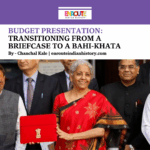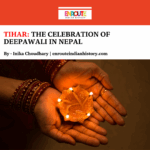Gardens of Literature: The Emerging Book Club Culture in Delhi
- EIH User
- March 27, 2024
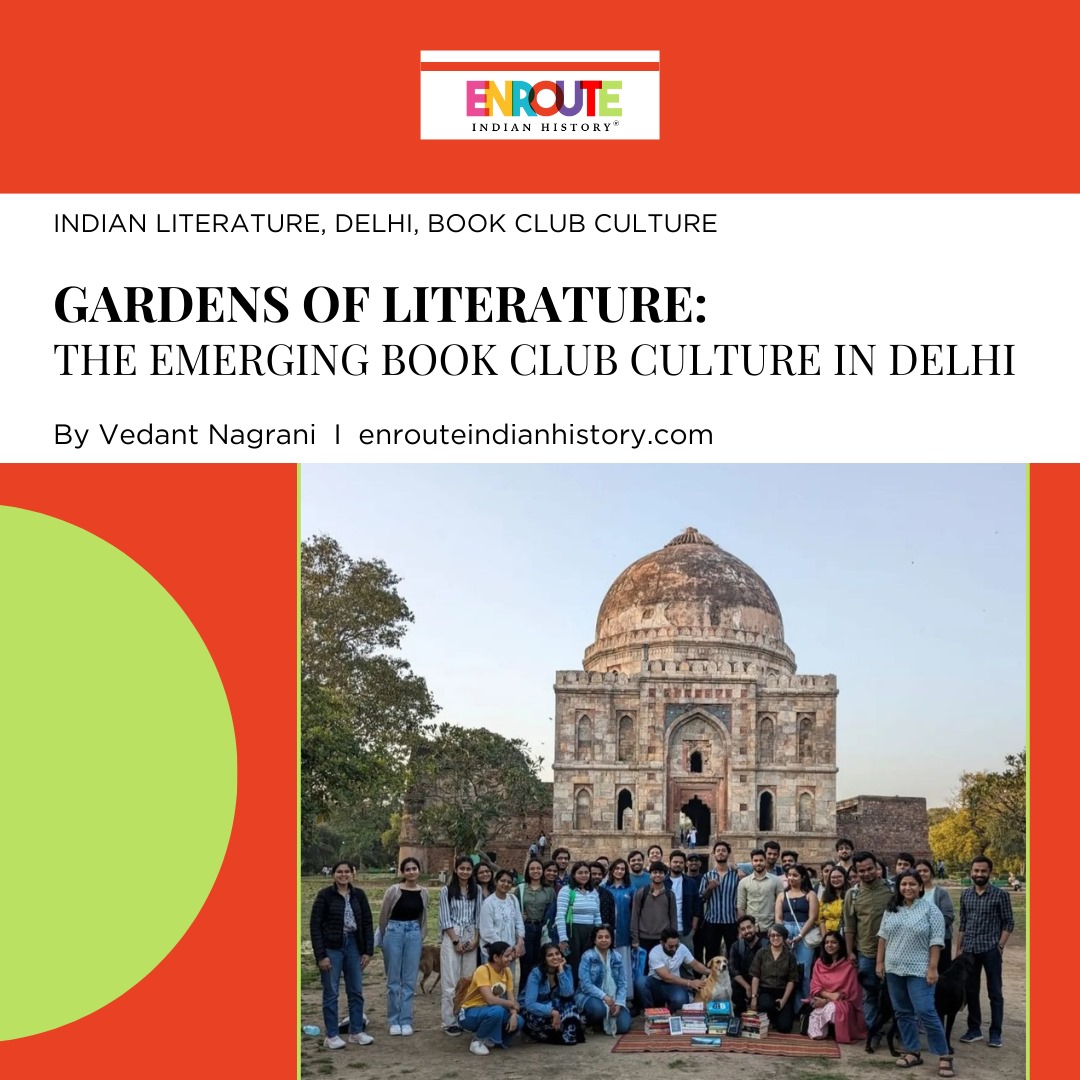
The concept of book clubs and reading circles goes back to 17th century England when the first Bible discussion groups were formed. With the emergence of coffee houses in the 18th century, book clubs became more secular in nature and their scope expanded beyond the discussion of religious texts as they discussed issues of socio-political significance. Not only did the emergence of such clubs aid the nation-building and political processes but it also proved to be beneficial for the coffee houses as it increased their sales. In the 19th and 20th centuries when women of several nations were not allowed to study in universities, book clubs and reading circles emerged that not only discussed literary texts but also created a space for formation of solidarities among women and for spreading progressive ideas of freedom and liberation. In India, several book clubs have emerged in the 21st century that consciously seek to build communities of readers when reading seems to have become obsolete. This article explores the recent emergence of a book club culture in Delhi during the past few years and it consequently analyses their significance in creating communities of readers as well as a reading culture that carries potential for individual as well as social change.
The capital of India has a very active reading culture due to various social, political and economic factors. One of the main reasons behind an active reading culture in Delhi is the establishment of various universities in Delhi as well as that of coaching institutes for several government exams that ensure a steady influx of students to the city. The capital status of Delhi also ensures that the city is one of the most desirable locations to organise book fairs, literary festivals and other related cultural events based around the activity of reading and literature. Further, the city also boasts of several book markets including the Mahila Haat book market at Daryaganj that sells books at throwaway prices every Sunday and makes reading more accessible to the public. Though these factors make Delhi’s reading culture very active, book clubs help create a collective space for such readers to read books together, exchange ideas and create meaningful bonds over literature. Though Delhi has had several book clubs since the 2010s, many of them have become inactive. In the last few years, however, several book clubs have emerged in Delhi that have led to a re-emergence of the book club culture of Delhi. Though these book clubs aim to create a community of readers, they are different in their core goals, structures, selection of books and topics of discussion among many other issues.
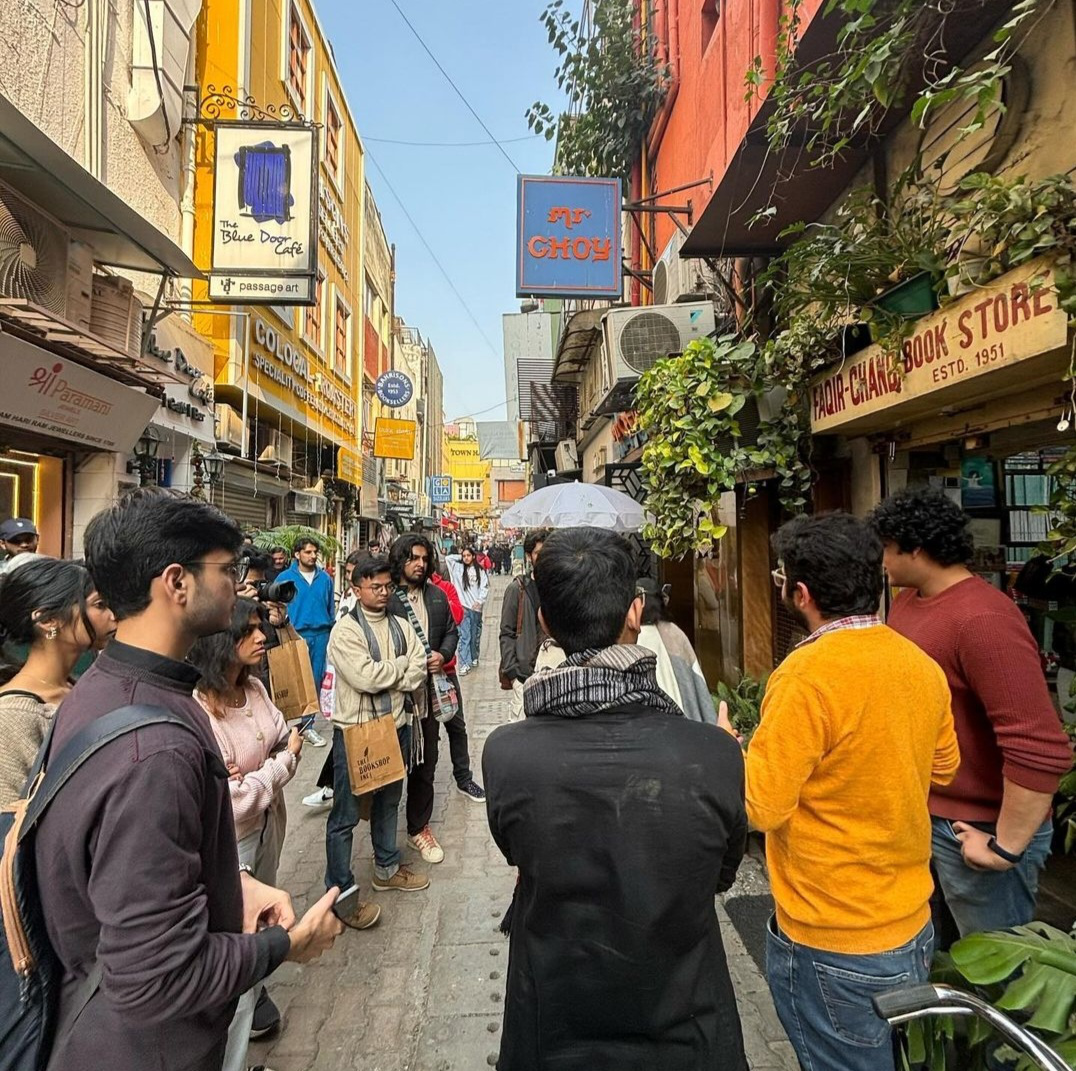
Caption: A photograph from a book tour of Delhi Reads
Credit: Instagram account of Delhi Reads
One of the most recently started book clubs in Delhi yet its largest, is Delhi Reads, a book club started by two Delhi University students in 2022 that conducts monthly book discussions based on either a book or a literary form/theme decided after taking suggestions from its members. The book club aims to create a community of readers in Delhi as well as explore the significance of Delhi by the means of its various activities such as book tours, book club merchandise and book exchange apart from the usual monthly discussions that also touch upon issues of contemporary social and political relevance. The club often collaborates with cafes, bookstores and public gardens such as Costa Coffee, Social, Lodhi Garden, Kunzum Bookstore etc. all over Delhi to host its monthly discussions and provide its members with special discounts. Though the book club has been received very well by its members, the model it follows as well as the paucity of time does not allow for excerpts from the text to be read and they are only discussed in the meetings. On the other hand, Tangerine, a book and poetry circle started in 2023, follows a model that involves and focuses on reading and discussing excerpts from the chosen texts in its monthly meetings. Unlike many book clubs of Delhi, Tangerine is primarily based on a niche of poetry readers though it also discusses prose and other literary forms. Unlike Delhi Reads, Tangerine does not encourage discussions on overtly political issues.
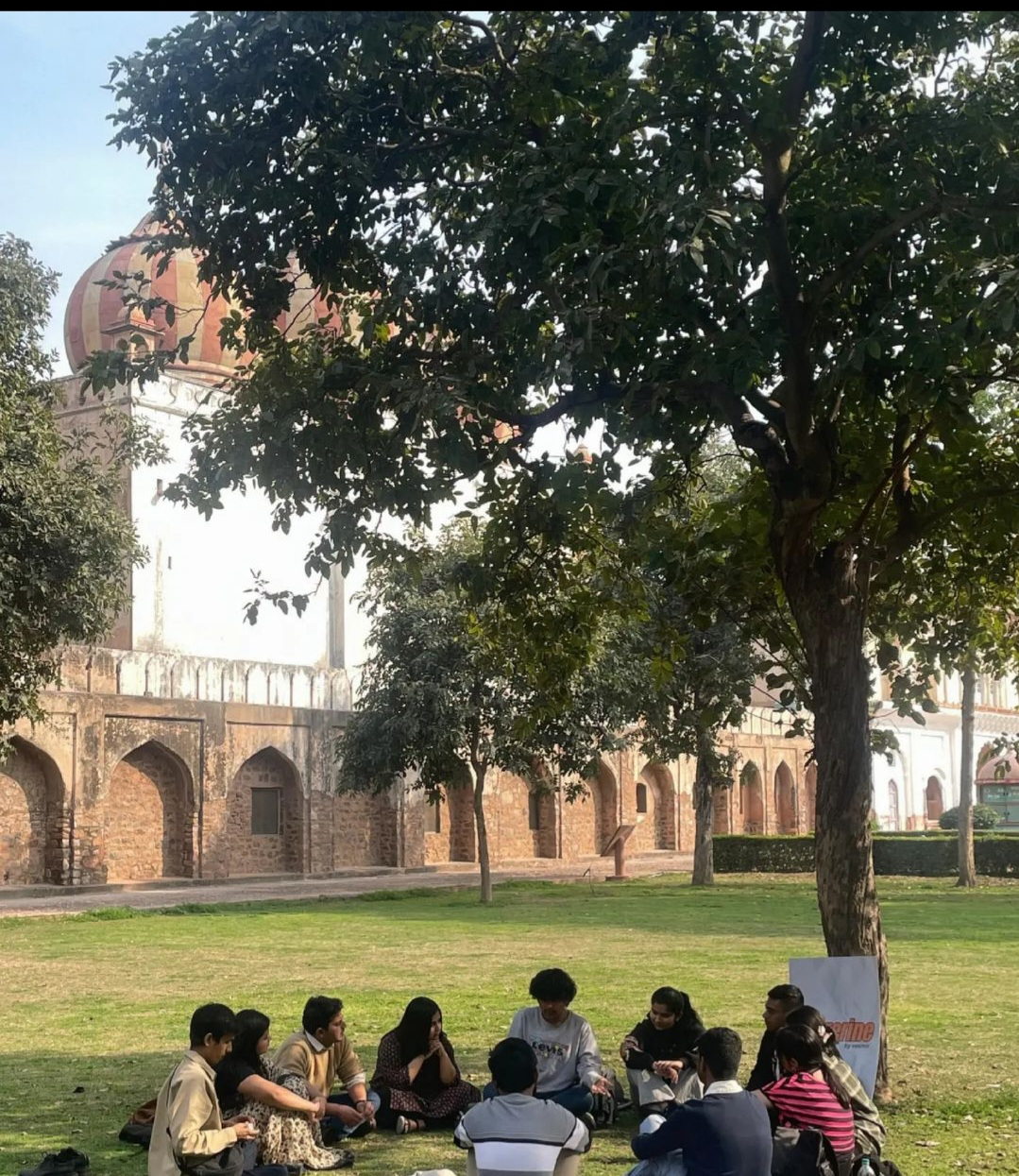
Caption: A photograph from the February meeting of the Tangerine Circle in Safdarjung Tomb, Delhi
Credit: Instagram account of Tangerine Circle
Though the previously discussed book clubs are free of cost for members to join, Delhi also has several book clubs that require a registration fee for membership. One such book club is Sanskaari Girls Book Club that, contrary to its name, discusses and challenges several conventional socio-political ideas with diverse readings from South Asian writers that particularly focus on intersectional feminism. The club takes new members for a 6 month cycle during which it conducts monthly meetings, curates newsletters and so on. These monthly meetings do encourage discussions on socio-political issues though they do not tend to discuss particular excerpts from the chosen texts of discussion.
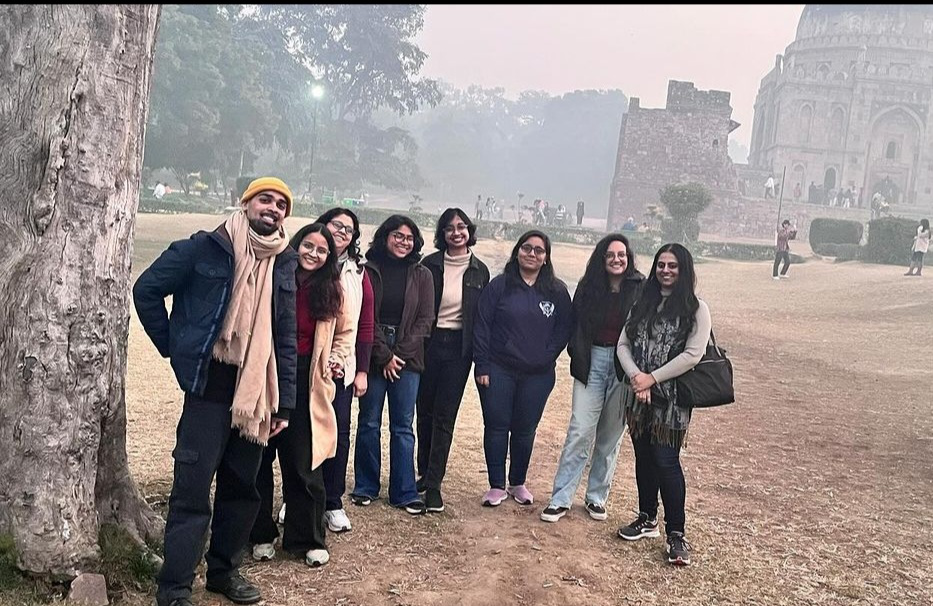
Caption: A photograph of a monthly book discussion of Sanskaari Girls Book Club in Lodhi Garden, Delhi
Credits: Instagram account of Sanskaari Girls Book Club
Unlike all the previously discussed book clubs, Lodhi Reads is a reading community based on silent reading sessions rather than book discussions. A chapter of Cubbon Reads, a famous reading community of Cubbon Park, Bangalore, Lodhi Reads conducts such silent reading sessions every Saturday in Lodhi Garden as readers bring a book of their choice, either physical copy or a soft copy, and read silently along with several other readers for a given period of time after which they discuss and interact with each other optionally, based on the individual’s will. Though Lodhi Reads is generally not known for its book discussions, it plays a major role in creating a reading community and an atmosphere where the presence of several readers pushes the comfort of the reader and makes them read a book in an age of very short attention spans. The club uses public space in a very efficient manner as it gives its members freedom to sit where they want and have a space of their own while it also creates an environment that connects its members by reading and making them aware of the presence of other members.
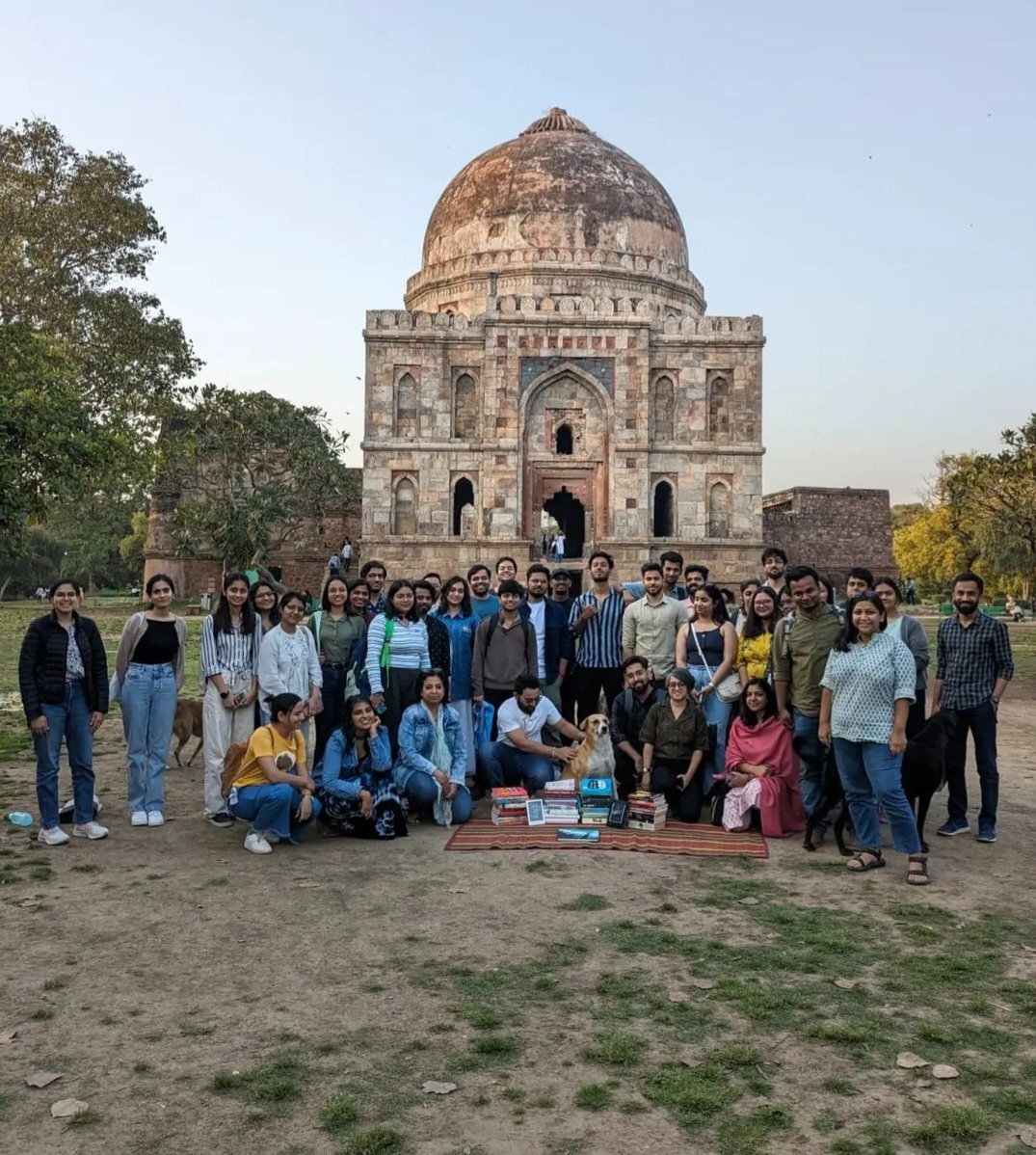
Caption: A photograph of the 46th edition of Lodhi Reads
Credit: Instagram account of Lodhi Reads
In a city as busy and as isolating as Delhi, book clubs are very important to create communities of like-minded individuals based on mutually shared interests. Though the above-mentioned book clubs follow different models based on different purposes, they often overlook the potential of such collectives and spaces for bringing about social change and discussing societal issues. As the history of book clubs and reading circles also inform us, the modern book club has been rooted in feminist struggles and other progressive struggles for equality. The book clubs of Delhi can also explore such possibilities of change and transformation as they go about creating gardens of literature.
Works Cited
- Burger, Pamela. “Women’s Groups and the Rise of the Book Club.” JSTOR, 12 Aug 2015.
- Dutta, Alisha. “Delhi reads silently.” The Hindu, 25 Jan 2024.
- Banerjee, Ashmita et al. “Reading Delhi with Delhi Reads.” The Alliance, 10 Sep 2023.
- Barnagarwala, Tabassum. “Common Cause: At Sanskaari book club, they discuss feminism, porn.” The Indian Express, 2 Dec 2018.



